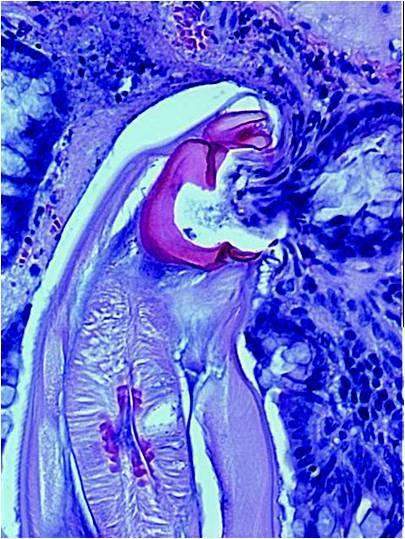
A study co-authored by Yale researchers and non-profit company InnovationsCZ has reported the efficacy of a low-cost deworming drug in farm workers infected with hookworms.
The drug, albendazole, was shown to work even in patients with low-level infections. The research team said the treatment could be especially important in food-challenged regions of Africa where the health of farmers is imperative for ensuring families are fed.

Discover B2B Marketing That Performs
Combine business intelligence and editorial excellence to reach engaged professionals across 36 leading media platforms.
As the majority of farmers in these areas are female, the research team also voiced the need for women’s inclusion in mass drug treatment campaigns.
The study, which took place in the Democratic Republic of Congo, specifically looked at women of childbearing age. This is a demographic especially vulnerable to hookworm due to blood loss from menstruation or demands from the foetus in pregnant women. The team was led by InnovationsCZ director Dr Margaret Salmon.
Findings showed that one 400mg dose of albendazole significantly improved the overall physical fitness of the infected farmers, with their heart rates dropping by ten beats per minute when doing an exercise test.
As such, the study authors noted the treatment could have a two-fold benefit of improving the health of patients, which would in turn enable them to farm more efficiently and produce more food for their families.

US Tariffs are shifting - will you react or anticipate?
Don’t let policy changes catch you off guard. Stay proactive with real-time data and expert analysis.
By GlobalData“We think the lower heart rates we observed are also a good indication of an increased capacity for the physical demands of farm labour,” study co-author Dr Michael Cappello said.
“It’s all the more impressive because the women who tested positive for infection had a relatively low level of hookworms and were not more anaemic than those who were uninfected.”
The study was published online in the April edition of The American Journal of Tropical Medicine and Hygiene.
Given the affordability and general safety of albendazole, the World Health Organization (WHO) has recommended that school-age children and non-pregnant women of childbearing age in hookworm-endemic communities should receive a single 400mg dose of the drug once or twice a year. In areas where the disease is endemic, pharmaceutical companies have provided albendazole at either low or no cost.
“There is strong evidence that children with moderate to heavy hookworm infections derive significant physical and developmental gains from effective treatment,” said Cappello.
“Far less is known about the benefits of broadly treating people like the women who participated in this study, who have a lighter burden of parasites.”
Hookworm infections occur following contact with soil contaminated with human sewage, causing chronic anaemia as the worms feed on blood. The team also linked hookworms to inflammation of the intestines and malnutrition resulting from a disruption to natural digestive enzymes.
The US Centers for Disease Control and Prevention estimate that globally 500 million people are infected with hookworm.





